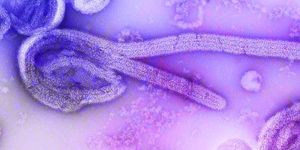Detecting Cytokine Storm Through Sweat
A cytokine storm is a severe immune system reaction where the body is flooded with cells and molecules (called cytokines) designed to generate an inflammatory response in the body. This significant bodily response can be caused by a range of infections, or even as the result of immunotherapies for cancer. Cytokine storms have also become a common trend in patients with severe COVID-19 infections, as the SARS-CoV-2 virus commonly elicits a significant inflammatory reaction.
Cytokine storms, more importantly, can be deadly. It can trigger an immune response that leads to the destruction of not just viruses or cancer cells, but healthy cells as well. In some cases, a cytokine storm can even lead to organ failure.
A new sensor worn on the skin, called SWEATSENSE, is designed to detect a potential cytokine storm by measuring certain proteins present in sweat, offering a potential early sign of an otherwise fatal condition. The sensor was developed by EnLiSense.
The sensor is specifically designed to detect IP-10 and TRAIL, two proteins that are commonly responsible for triggering a cytokine storm.
Described in detail in a recent paper published in Advanced Materials Technology, researchers at the University of Texas at Dallas were able to show that the sweat sensor was able to accurately measure these proteins in a person’s sweat. There was no need, however, for sweat produced by physical activity in order to get an accurate reading.
The sensor could also differentiate between different types of infection (e.g., viral or bacterial).
The idea of a sweat sensor, however, is not new. In fact, SWEATSENSE is just part of a growing trend of sensor development and wearable technologies that has emerged in recent years. Much of this research has focused on designing flexible, lightweight, accurate sensors that can be worn on the skin. The goal of these sensors is often to collect various data about a wearer's physical health. The ability to accurately detect and measure a range of health information could open up significant avenues towards more effective prevention and management of different diseases.
Sources: Medgadget; Advanced Materials Sciences








